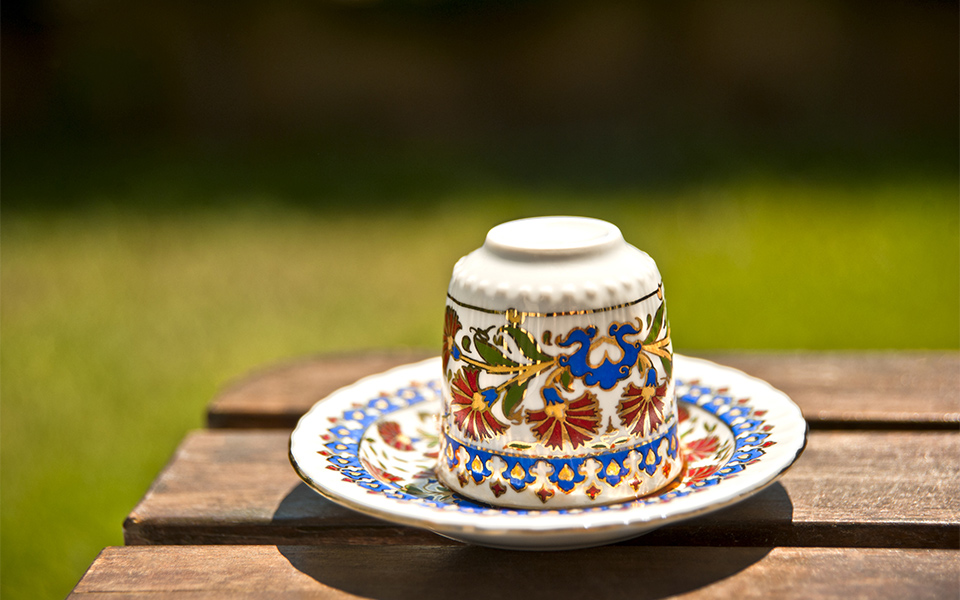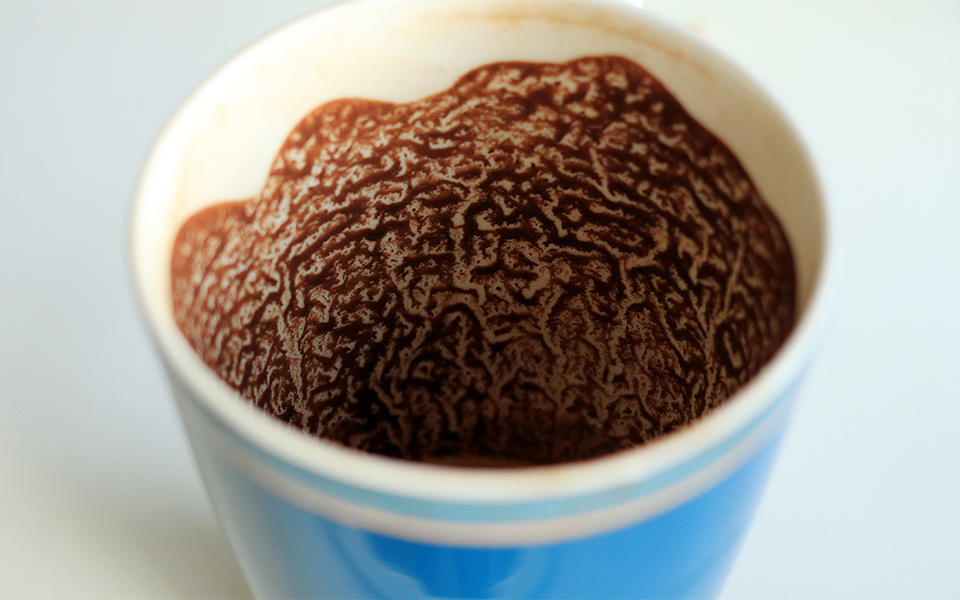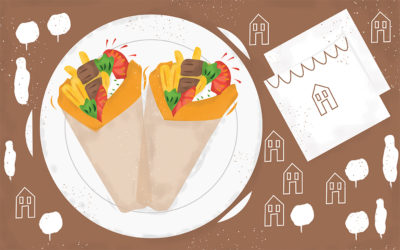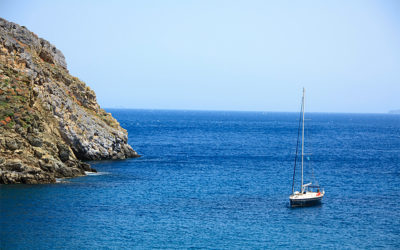
Life
Storm in a Coffee Cup: My Tasseomancy Experience in Thessaloniki
“I see you have two… boys (?)”
I smile, “Mmm, no…”
“One of each?”
My smile widens as I raise my eyebrows. This is my first experience with tasseomancy (tasse = cup, like in demitasse, and –mancy = divination) – known here as kafemanteia – coffee reading. It’s starting out to be much as one might imagine – an agreeable diversion. Maria, the reader, shrugs off the slow start – we’re just warming up.
Over the next quarter of an hour, my past and future will unfold over my cup: she talks knowledgeably about my life, then describes with uncanny precision (gender notwithstanding) the principal figures in it, their struggles and their desires.
In some cases she supplies the (correct) letter of their first names. She even describes someone’s physical appearance (the portrait, rendered in coffee grounds, looks like a Rorschach test to me, but her description- which includes even height – is on the nose). Predictions follow – plausible at the time, and proven accurate over the passing months.
Were the reading not so sanguine, I would have been unnerved. Truthfully, even this happy reading left me fairly shaken; given its unerring precision, I was no hurry to go for another. There’s only so much you want to know about your fate.
This is why my next coffee reading is over a year later. I wait until what seems to be an auspicious stretch. I even go so far as to prepare by having a “xematiasma” done (an incantation to remove the effects of the evil eye), so that I go in with as much of a psychic clean slate as possible. I try a different place, to see if there is anything to the art itself or if my first reading was simply a chance encounter with an unusually gifted reader.
I have to wait a while; two women are having readings done – both coffee and tarot (places that offer coffee readings often offer cards or tarot, too). The café is intimate, with velvet curtains, antique furniture, plants. A Boticelli reproduction is on one wall and, oddly comfortingly, Wham! is playing.
As my turn approaches, the waitress reminds me not to drain the cup completely, but to leave a small sip. The mechanics of kafemanteia work like this: Greek coffee is made with coffee that has been ground into a fine powder and is then simmered together with water until a thick ring of foam swells around the edges of the “briki” (a small pot for boiling coffee). The coffee is poured into the cup unfiltered; the rich sediment sinks to the bottom as you sip gently from the top so as not to disturb it. It is this sediment that will cling to the sides of the cup in patterns and symbols that – depending on your point of view – may be anything but random. I have read that people turn over their own cup, but at both this reading and the last one, the waitress turns the cup over for me.

Random patterns or indications of what is to come? © Shutterstock
Unlike my first reading – which was right at the table, Stella, the reader, leads me to another table in a private corridor. She starts out strong, with a prediction that I know to be true; the road that symbolizes an impending journey is a clear broad streak of white through the coffee grounds, visible even to me. Other symbols are equally clear, and not at all obscure – an arch (or horseshoe if you like) for luck, a heart for love, and so on. As in the first reading, she speaks about others in my life. Also, as in the first reading, she gives someone’s initial, and even describes someone physically (a different person from the first reading). Her remarks are accurate, the predictions plausible.
Stella has an easy way – confident and open, not overly mysterious. I ask how she started and she tells me she learned to do readings from her sister, who passed it on to her after learning it from their grandmother, a Greek woman from Istanbul. “Coffee reading is very popular there. Many people who know how to do this have their roots in what now is Turkey,” she says. How does she do it? I could see for myself that some symbols are very clear. But they’re not taken in isolation. They’re interpreted together; the cup as a whole makes an impression. Moreover, for Stella, the person makes an impression – “I’m not just reading the cup, I’m reading the person, the energy coming from them.”
I wonder who comes for readings. “Everyone really – men and women. But maybe mostly women, over 40, 45.” What do they want to know? “Everything. It used to be mainly personal lives – romance, family, health. But now, especially with the economic difficulties people are having, they want to know about their business, finances, too.”
I wonder how often they come. Stella says it varies of course, but some people – women usually – will come almost every day, especially during a period of crisis, and most especially through a relationship crisis, like a divorce. I imagine the work must be draining, confronting so much hope, so much anxiety. “Most days, I do 10 to 15 readings. It can be very intense, but there can also be a lot of positive energy.”
And what about unfavorable predictions, I wonder- how does she handle them? “It’s hard. But these are things they may need to know. I try to tell them in as gentle a way as possible.”
Do young people ever come? Oh, yes “usually girls, and very young, 18, 19, 20.” I venture a safe guess: “About romance?”
“Always,” she smiles, “only.”
Info:
Coffee readings are usually free with the price of the coffee, or perhaps a euro extra. Leaving a tip is usual. Look for a sign that has a drawing of a coffee cup and the word «καφεμαντεία».
Here are some to try in Thessaloniki:
Kafe Theatro – Olympou 67. Stella, the reader I met, speaks English and is usually there from around 10:00 – 16:00. Another reader, Maria, also speaks English and is there in the evenings.
D.O.M. Kafodeio – Vasilissis Olgas 119. Coffee readings throughout the day, and in the evenings. Maria will do your reading in Greek if you can bring a Greek speaking friend to translate.
Mikrodoma, Konstantinou Melenikou 44. This place specializes only in readings (coffee and cards both). Open from 10:00 – 22:00 (weekends, 10:00 – 20:00). Bring a Greek speaking friend to translate.







